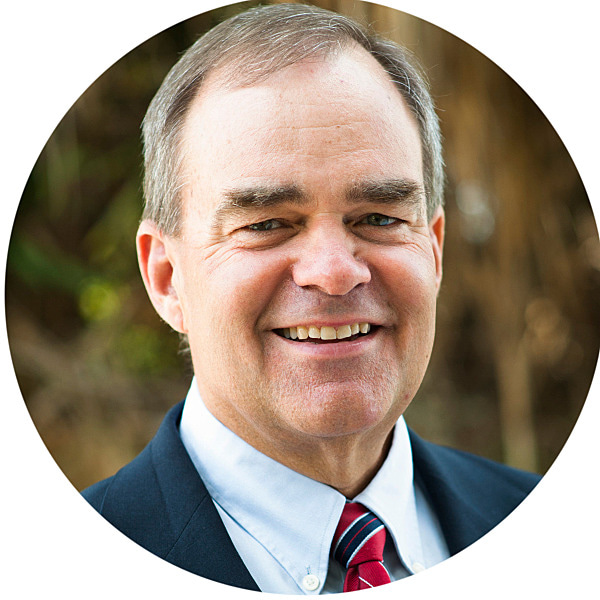Key Concepts in Biblical Counseling
So, there are several key concepts in biblical counseling. I’ve come up with ten. That my number; you could have 50, you could have five and combine them in different ways. This is a summary of what it’s about.
Biblical counseling is God-centered
So, what is biblical counseling? First of all, biblical counseling is God-centered. As Paul writes to the Corinthians, “In all things, we want to be pleasing to him.” He writes also that whatever you do should be done for the glory of God. And this is a real break we would make with secular psychology. When someone comes to a secular psychologist, kind of like what can we do for you? What is your goal in our meeting with you? And the counselee would set the agenda. I had a woman come to me one time who was an exotic dancer living with a Muslim boyfriend, and she wanted me to help her get along better with her Muslim boyfriend. By the way, later I’ll mention I do not counsel women alone; there’s one reason why. Her goal, and there might have been some communication techniques or problem solving techniques you could have told her that should could get along better. And that would have been what she wanted.
But my job as a biblical counselor is what would God have to say to this woman. And first of all, if she professes to be a Christian, there are things about her life that she needs to repent of. And to come in subordination to God. She certainly doesn’t want to be yoked to nonbelievers. She doesn’t want to be involved in fornication of tempting others. So, it’s not about the happiness of the counselee. It’s not about the counselee achieving in life what he or she wants.
And then the question that a counselor has to continue to be asking himself, and I think it’s also something we continually ask the counselee, is not what do you want, but what does God want here. And that often make counseling pretty simple.
Biblical Counseling is founded on sound theology
Second of all, biblical counseling is founded on sound theology. It’s built on a solid understanding of scripture and what the Bible teaches about God and about man. If you want to be certified in biblical counseling by the national certifying organization NANC, you have a counseling exam but there’s an entire theology exam because every aspect of theology relates to counseling. Theology isn’t just something abstract and intellectual. And we’re going to go through this later, how understanding the ministry, the Holy Spirit, is vital in counseling people, understanding the nature of man and his falleness, understanding how God works in sanctification, understanding how the attributes of God comfort us and instruct us. So, theology needs to be known well to help people. You need to know your Bible and what it says about God.
Biblical counseling confronts sin as the source of mankind’s spiritual problems
Third, biblical counseling confronts sin as the source of mankind’s spiritual problems. That being made in God’s image, as we’ve already talked about. But part of what that reminds us about understanding human nature is that we are not merely physical beings. We have both body and soul, and it’s actually the soul that controls the body. It’s from the heart that we act. It’s what’s inside of you, in terms of your spiritual nature but mankind is also fallen.
The way things are is not normal or good. All have sinned and fallen short of the glory of God. And Adam all have died. And so, the spiritual problems we face are directly related to sin. Sometimes the sin may be somebody else’s sin and how we have to deal with that sin. But even then we could deal with it sinfully, righteously. But sin is at the root of the problem. We’re going to have to confront sin. In Acts 17, when Paul is speaking to unbelievers in Athens Paul declares, “having overlooked the times of ignorance, God is now declaring to men that all people everywhere should repent.” You can’t be in right relationship with God, you can’t correct the problems of your soul unless you repent of sin and submit yourself to the lordship of Christ.
Now it’s also true that all other problems are because of sin. Death is in the world, sickness is in the world because of sin. It doesn’t mean because of your sin. In John nine Jesus said, the man born blind, it wasn’t because he sinned or his parents sinned. It was ultimately for the glory of God. And there’s sickness and there’s death and there’s trouble in the world and people’s physical problem, even if someone has Alzheimer’s or Schizophrenia. Well that’s because Adam fell that our bodies are deteriorating, even if those particular problems are not caused by personal sin. But as we face physical problems, as we face the affects of sin, and it could just be pain, anything, that also will always raise a spiritual issue of how do I deal with living in a fallen body in a fallen world.

